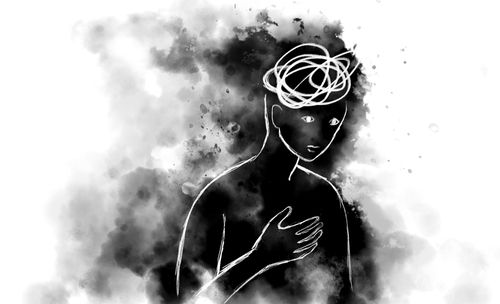 There are many events in life that are hard to forget. Some of these things are happy occasions, such as a wedding or the birth of a child. Others, however, are traumatic. Natural disasters, wars, assaults and other types of threats can have lasting effects, not only on the people who experience them but also on witnesses. Different people react to trauma in different ways, but post-traumatic stress disorder is a common response.
There are many events in life that are hard to forget. Some of these things are happy occasions, such as a wedding or the birth of a child. Others, however, are traumatic. Natural disasters, wars, assaults and other types of threats can have lasting effects, not only on the people who experience them but also on witnesses. Different people react to trauma in different ways, but post-traumatic stress disorder is a common response.
If you suspect you are experiencing PTSD, you are not alone, nor do you have to handle it on your own. There are several ways you can address how your mind and body cope with lived trauma.
Recognize the Signs
One of the reasons people often don't recognize that they need help is that it's difficult to pin down exactly how past trauma is affecting them. There are many ways that PTSD can manifest in adults:
- Flashbacks of the traumatic event
- Feelings of hopelessness or depression
- Alienation and isolation
- Persistent negative emotions such as shame or betrayal
- Hypervigilance
- Sudden outbursts of anger
Children who have undergone trauma often show similar signs, including increased anxiety, fear of abandonment and skill regression. Additionally, they will often reenact trauma during play as they struggle to make sense of it. Knowing the symptoms of PTSD can help you recognize it in both yourself and others.
Get Outside Support
As with any mental health issue, PTSD can be treated by a qualified professional. Find a therapist who specializes in your particular type of trauma. There are those who have a lot of experience working with veterans and thus have unique insight into the problems they may face. Others focus on sexual trauma and can provide the latest treatment options and resources that are helpful to survivors. If you are experiencing racial trauma, it helps to work with someone who is familiar with the sociological aspects of these triggers and how they can affect you.
Peer support is particularly helpful to those with PTSD. Maintaining open lines of communication with family and friends can help combat the feelings of isolation and loneliness that you experience. Joining a support group, whether in person or online, can also be valuable. Your church may have its own group, but even if it doesn't, the pastor can likely help you find local, consistent support. Every time you meet, you have tangible proof that you are not alone in your struggles, which may be fundamental to your healing.
Seek Body Awareness
One of the most common coping mechanisms that the brain uses to deal with PTSD is dissociation. There are many different ways this can happen, but it typically involves some kind of disconnect between yourself and reality. It may feel like a relief when it occurs, but it is not a long-term solution and can have negative effects over time if it goes unchecked. One way to keep yourself grounded is through activities that promote body awareness.
Start by choosing exercise that moves your whole body, such as dancing, running or swimming. When your brain has to home in on coordinating different moving parts, it is less likely to check out. Other options include more exhilarating sports such as boxing or rock climbing, in which a slight element of danger keeps you focused on the task at hand. Regular yoga practice helps you pay attention to your breathing and regulate your emotions more easily.
PTSD isn't anything to be ashamed of. If you are experiencing any of the typical symptoms, it takes courage to address your issues, but it's well worth the effort. Take back the control that the trauma stole from you by getting the help you need.